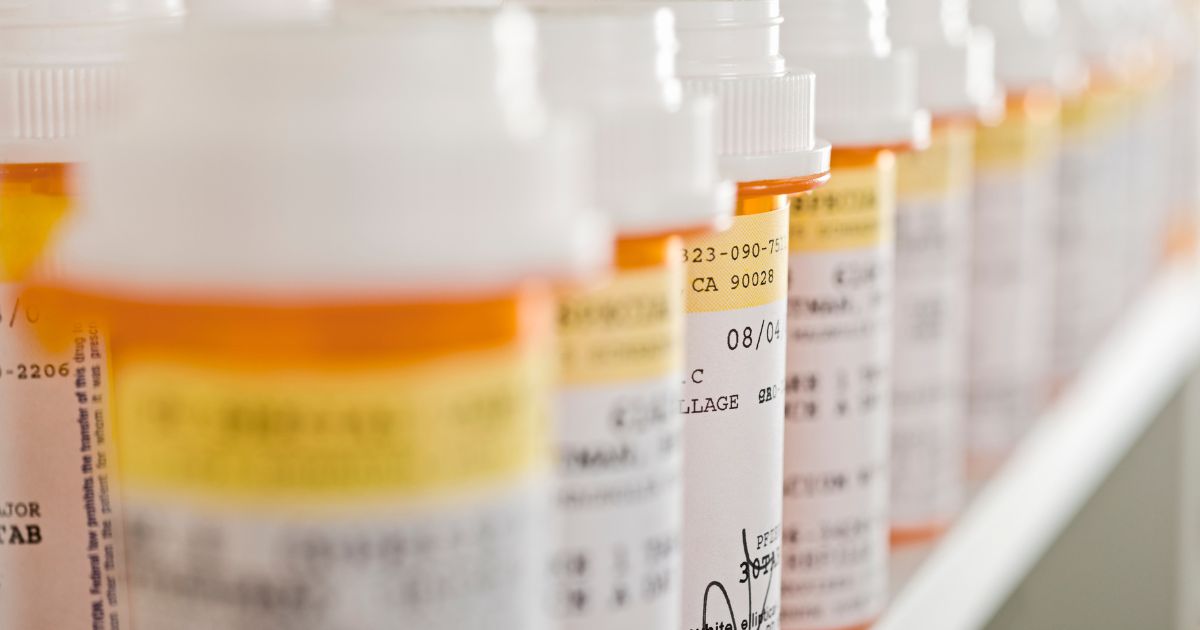Vyvanse is a commonly prescribed medication for ADHD and binge eating disorder—but like many stimulants, it carries the risk of dependence and addiction when misused. While it may seem safer due to its extended-release design, it can still be habit-forming, especially when taken in high doses or without a prescription. In this guide, we’ll answer questions such as:
- How does Vyvanse work?
- How long does Vyvanse last?
- What is Vyvanse withdrawal like?
- What are the side effects of Vyvanse?
If you or a loved one struggle with Vyvanse addiction, know that professional treatment—starting with medical detox—can help you or your loved one break free from stimulant addiction.
What is Vyvanse?
Vyvanse is a stimulant medication prescribed to treat attention deficit hyperactivity disorder (ADHD), as well as binge eating disorder. It’s the brand name of lisdexamfetamine dimesylate, a prodrug, meaning it remains inactive until the body metabolizes it into its active form, dextroamphetamine. This gradual conversion is thought to reduce the potential for abuse compared to other stimulants. It also helps it last longer in the body than other medications like Adderall.
When taken as prescribed, stimulants like Vyvanse can be very helpful – even life-changing – for those with ADHD. However, it is a controlled substance due to its potential for misuse, dependence, and addiction.
How Vyvanse Works
Vyvanse is a prodrug of dextroamphetamine, meaning it must be metabolized in the body to become active. It was designed for an alternative to stronger ADHD meds like Adderall, which have more abuse potential.
Once ingested, enzymes in the blood convert Vyvanse into dextroamphetamine, which increases the levels of neurotransmitters dopamine and norepinephrine in the brain. Because these neurotransmitters are linked to feelings of reward, motivation, and alertness, and are shown in brain scans to be lower in those with ADHD, it is thought that raising these levels improve attention, focus, and impulse control in those with the disorder.
Vyvanse vs Adderall
Both Vyvanse and Adderall are stimulant medications used to treat ADHD, but they differ in how they’re absorbed and how long they last. Vyvanse is a prodrug, meaning it must be metabolized in the body before becoming active, which results in a slower onset and longer duration—up to 14 hours. Adderall, on the other hand, works more quickly and comes in both immediate and extended-release forms. While both can be effective, Vyvanse may have a lower potential for misuse than other extended-release ADHD meds like Adderall due to its time-release design.
Get confidential help from our addiction treatment specialists in Orange County. Call to join our rehab program today!
Call 866-881-1184How Long Does Vyvanse Last?
Vyvanse lasts up to 14 hours after taking a dose. It is a long-acting drug that is released slowly over the day. According to studies on lisdexamfetamine, it starts to take effect roughly two hours after taking the medication, reaching peak levels in the blood to three and a half hours in.
Vyvanse begins taking effect in children with ADHD aged 6 to 12 within one and a half hours of taking the medicine and up to 13 hours after the morning dosage. Parents say that it is effective throughout the day, wearing off sometime in the early evening.
Is Vyvanse Addictive?
Like any stimulant, it can be. Vyvanse is classified as a Schedule II controlled substance in the U.S.
While Vyvanse abuse potential is lower than other ADHD meds like Adderall, it can still affect your dopamine receptors, which can induce dependence. Taking Vyvanse in higher doses than prescribed or using it without a prescription increases the risk of addiction and serious health complications. If you are prescribed Vyvanse for ADHD, always use it exactly as directed by your doctor.
Signs Vyvanse Dose is Too High
If the dose of Vyvanse is too high, people may experience side effects like increased heart rate, high blood pressure, restlessness, anxiety, trouble sleeping, tremors, or feelings of paranoia. Other symptoms of too much Vyvanse include severe irritability, headaches, nausea, or rapid mood swings. If any of these occur, it’s important to contact a healthcare provider immediately to discuss adjusting the dose.
Looking for quality substance abuse treatment that’s also affordable? South Coast accepts most major insurance providers. Get a free insurance benefits check now.
Check Your CoverageSigns & Symptoms of Vyvanse Addiction
Like many stimulant medications, Vyvanse can be habit-forming—especially when misused. If you’re concerned that you or someone close to you may be struggling with Vyvanse addiction, there are certain warning signs to watch for.
Behavioral signs of Vyvanse addiction:
- Taking higher doses than prescribed
- Using Vyvanse without a prescription
- Doctor shopping or trying to get multiple prescriptions
- Neglecting responsibilities at work, school, or home
- Obsessively thinking about the next dose
Physical & mental symptoms of Vyvanse addiction:
- Extreme weight loss
- Insomnia or irregular sleep patterns
- Agitation or irritability
- Mood swings or depression
- Paranoia or anxiety
Recognizing these symptoms early is key. Stimulant addiction is not something to take lightly – but recovery is possible with the right support. If you or a loved one needs help, don’t hesitate to reach out to a medical or addiction professional.
Vyvanse Withdrawal & Detox
When someone stops taking Vyvanse—especially after long-term or heavy use—they may go through withdrawal. This is the body’s way of adjusting to life without the drug. Withdrawal symptoms can be uncomfortable, but they are a normal part of the detox process.
Common Vyvanse withdrawal symptoms include:
- Fatigue or extreme tiredness
- Depression or mood swings
- Trouble concentrating
- Increased appetite
- Anxiety or irritability
- Cravings for the drug
Symptoms can begin within 24 hours after the last dose and may last for several days to a few weeks, depending on the person’s usage history.
Detoxing from Vyvanse is safest and most effective when done under medical supervision. A detox program can help manage withdrawal symptoms, reduce cravings, and ensure a safer, more comfortable process. In some cases, medications or therapeutic support may be used to address sleep disturbances, depression, or anxiety during withdrawal.
If you’re currently going through Vyvanse withdrawal, don’t do it alone. Talk to a healthcare provider or addiction specialist to find a detox plan that works for you.
Treating Stimulant Addiction
Overcoming a stimulant addiction like Vyvanse involves more than just detox—it requires a comprehensive treatment plan that addresses both the physical and psychological aspects of addiction.
If you or a loved one are seeking treatment for addiction, South Coast Behavioral Health is here to help. The first step in treating addiction is a medical detox. This means using drugs to manage withdrawal symptoms. Depending on the severity of the dependence, this could be done on a tapering schedule for stimulants.
Once Vyvanse is completely out of your system, talk therapies such as cognitive behavioral therapy can be employed to treat the roots of the stimulant addiction, as well as the co-occurring ADHD. Because many with ADHD struggle with executive function, we offer life skills training to help people learn how to live independently, as well as case management to ensure to represent your interests in securing needed support and resources.
Get Started Today
At South Coast Behavioral Health, we provide comprehensive treatment for drug and alcohol addictions, with specialized programs for alcohol addiction, opioid addiction, benzodiazepine addiction, and prescription stimulants misuse. Whether you’re experiencing extreme fatigue, physical dependence, or withdrawal from Vyvanse, our expert facility care team is here to support your recovery every step of the way.
If you or a loved one are struggling with addiction but wonder how long addiction treatment takes or have other questions, call us at 866-881-1184 or contact us here. Our highly qualified staff will be happy to help give you an idea on what to expect from your addiction recovery timeline, help verify your insurance, and assist with any other questions you may have
Does Vyvanse increase libido?
What happens if you stop Vyvanse cold turkey?
Can Vyvanse cause panic attacks?
Does Vyvanse give you anxiety?
Is 40mg Vyvanse a lot?






